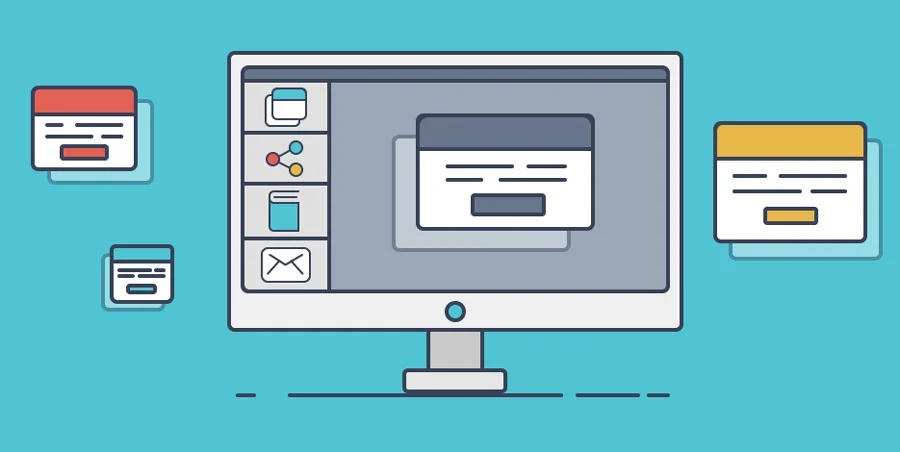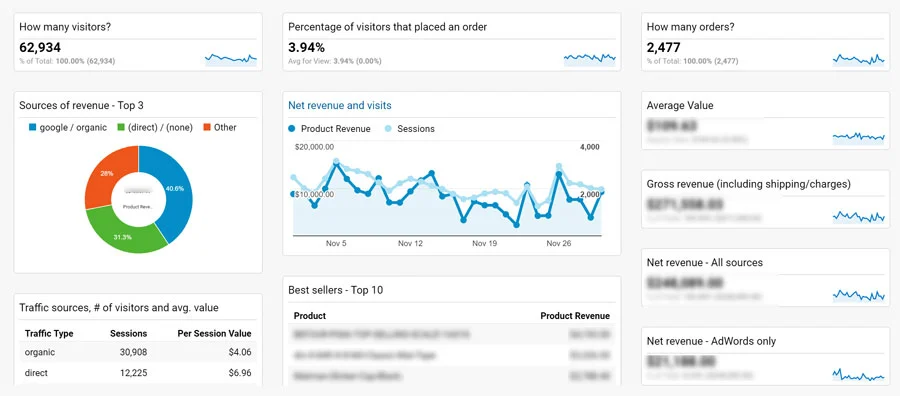Your eCommerce website is the face of your business, and making an excellent first impression is the key to boosting sales and retaining customers. Visitors expect speedy load times, easy-to-navigate web pages, working links, and visible calls to action (CTAs). Without them, your traffic will turn icy cold.
How do you optimise your website to surpass your business goals? Choose the most significant key performance indicators (KPIs) and set up proactive eCommerce monitoring tools to flag issues that could set you up to fail.
In this post, we’ll explain what e-commerce monitoring tools are and why they’re so essential. Then, we’ll highlight five vital tools that’ll help you revolutionise your eCommerce site.
What are eCommerce Monitoring Tools?
Ecommerce monitoring services give you tangible data about your website’s performance. They continuously keep track of your site’s status, flag potential failures, defects, or problems, and present solutions to pressing issues like speed, usability, and page bloat.
Knowing what to measure is half the battle because you don’t want constant notifications about the small stuff. There are hundreds of tools out there, which is why you should think carefully about what KPIs matter the most.
While every eCommerce website is different, here are some areas you should consider monitoring:
- Loading speed
- Usability
- Page bloat
- Website traffic
- Bounce rate
- Conversion rate
- Shopping cart abandonment
- Social media shares
Why are E-commerce Monitoring Tools so Important?
Meeting your goals can’t be left to guesswork or gut feelings. Instead, take a data-driven approach with tried and tested results.
Monitoring tools highlight actual problems and give insight into how to improve your website’s overall performance. You’re no longer stumbling around in the dark, wondering “why?”. You get to the heart of issues quickly, saving all-important time and resources in the process.
To summarise, the benefits of eCommerce monitoring tools include:
- Accurate indicators of website performance
- Immediate notification and solutions of problems like downtime
- Real-time reports on website visitors, conversions, and more
- Easy-to-implement strategies on how to improve speed, traffic, and more
- Effortless to set up and cost-effective
5 eCommerce Monitoring Tools to Revolutionise Your eCommerce Site
As mentioned, choosing the most effective eCommerce monitoring tools saves plenty of fuss. Don’t sweat the small stuff. Instead, focus on:
- Page Load Speed Alerts
- Page Bloat
- User Journey Mapping
- Ecommerce Audits
- Google Analytics
1 – Page Load Speed Alerts
When it comes to eCommerce, speed matters. According to the latest research, 40% of people abandon a website that takes more than three seconds to load. Similarly, Google found that 53% of mobile visitors leave a webpage that doesn’t load within three seconds.
Slow websites leak sales and traffic. One worrying report even estimated that UK businesses lose roughly $80 billion in unrealised sales every year due to clunky websites. Plus, they frustrate potential customers and paint your brand as being unreliable.
Thankfully, speed alerts identify problem pages that slow your website down, so you can remedy them. Key culprits often include large amounts of text, redirected links, and unoptimised images.
2 – Page Bloat
Page bloat is precisely what it sounds like – websites stuffed with videos, large images, and broken code. Pages get bigger and bigger until they’re no longer usable or loadable, leading to crashes and a ballooning bounce rate (the percentage of visitors who navigate away from a website after viewing only one page).
Ecommerce monitoring tools manage page bloat by checking third-party JavaScript speed and optimising visuals. Ultimately, they put your website on a digital diet to reduce the overall size while retaining necessary content.
3 – User Journey Mapping
Your website has one goal – to drive visitors towards purchasing a product or service. However, it’s easier said than done.
If you’re losing sales and don’t know why it could be down to your user journey. Broken hyperlinks, unclear CTAs, illegible fonts, and unintuitive navigation can funnel customers away from the checkout, leading to a devastating loss in revenue.
Arguably, user journey mapping is one of the most vital tools on our list. It’s a visual representation of the customer experience, showing businesses how their website looks and performs from a third-party viewpoint. Most importantly, it reveals where your website’s not meeting customer needs and provides solutions.
4 – eCommerce Audits
Regular eCommerce audits are tools for success. They monitor crucial areas of your business, including SEO (search engine optimisation), UX (user experience), and CRO (conversion rate optimisation), and offer a blueprint for optimising your digital offerings moving forward.
Extensive reviews pinpoint breaks in your sales funnel so you can fix them, ultimately leading to more conversions. Additionally, they highlight technical issues that put off potential customers.
While you can undertake audits in-house, third-party assessments are most effective. Experts with in-depth technical knowledge provide immeasurable value because they aren’t blinded by proximity, meaning they can see problems you can’t.
5 – Google Analytics
Google Analytics (GA) is a free tool any business can use to collect data about their website’s performance. It makes it easy to understand how users engage with content, and measures points of sale and other touchpoints for a more complete view.
While GA is helpful, it’s what you do with the data afterward that makes a difference. If you’re unsure how to turn numbers into tangible results, an expert eCommerce agency can help.
Implement the Best eCommerce Monitoring Tools Today
At Bing Digital, we believe change starts with data. By implementing the tools above, we’ll turn problem areas into powerhouses. Our proactive eCommerce monitoring services can tell you precisely what your customers think of your website and offer improved solutions.
Our tried and tested strategies have proven results, enabling brands to unlock their full potential to make more sales and surpass their business goals.
If you’re ready to optimise your website for increased speed, traffic, and sales, contact the team at Bing Digital to arrange a free consultation. Alternatively, expert support is just a phone call away on 020 8242 1954.




